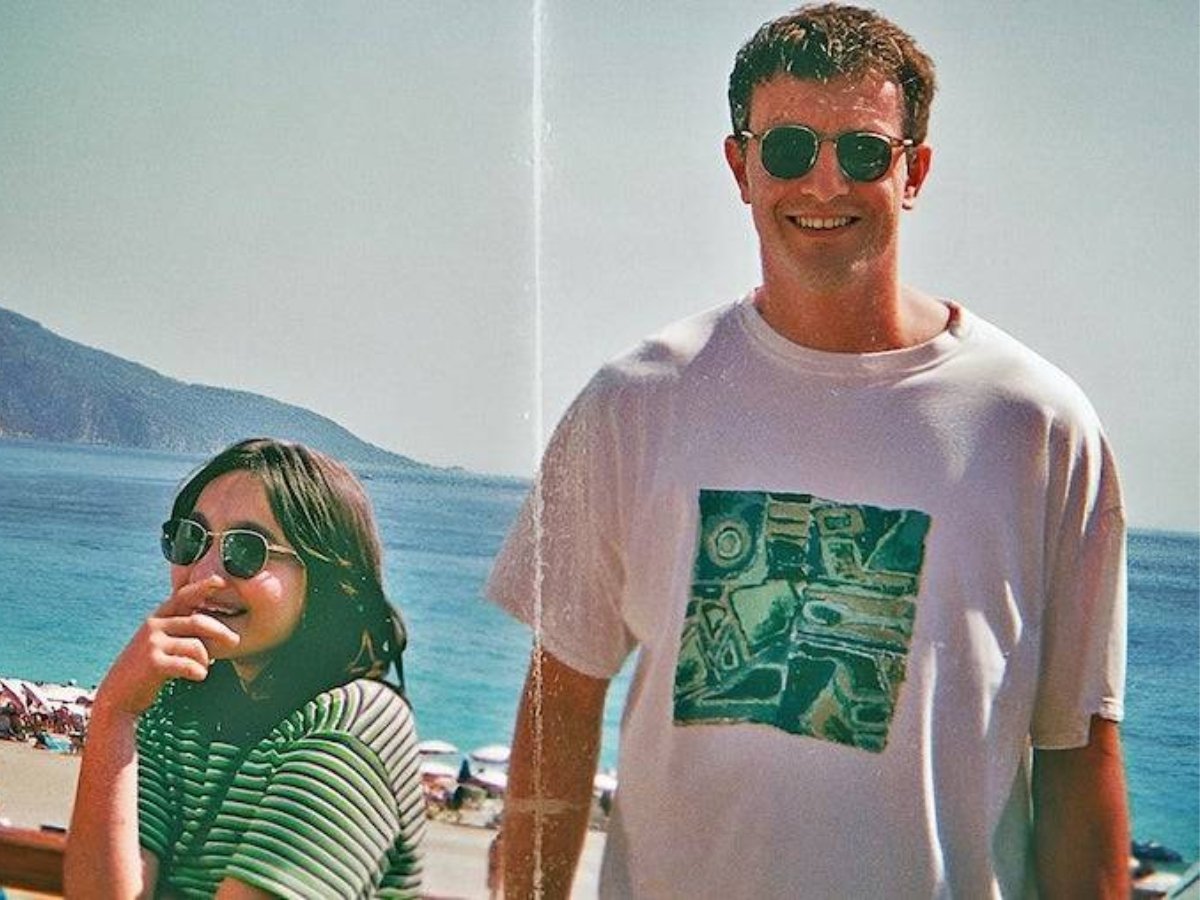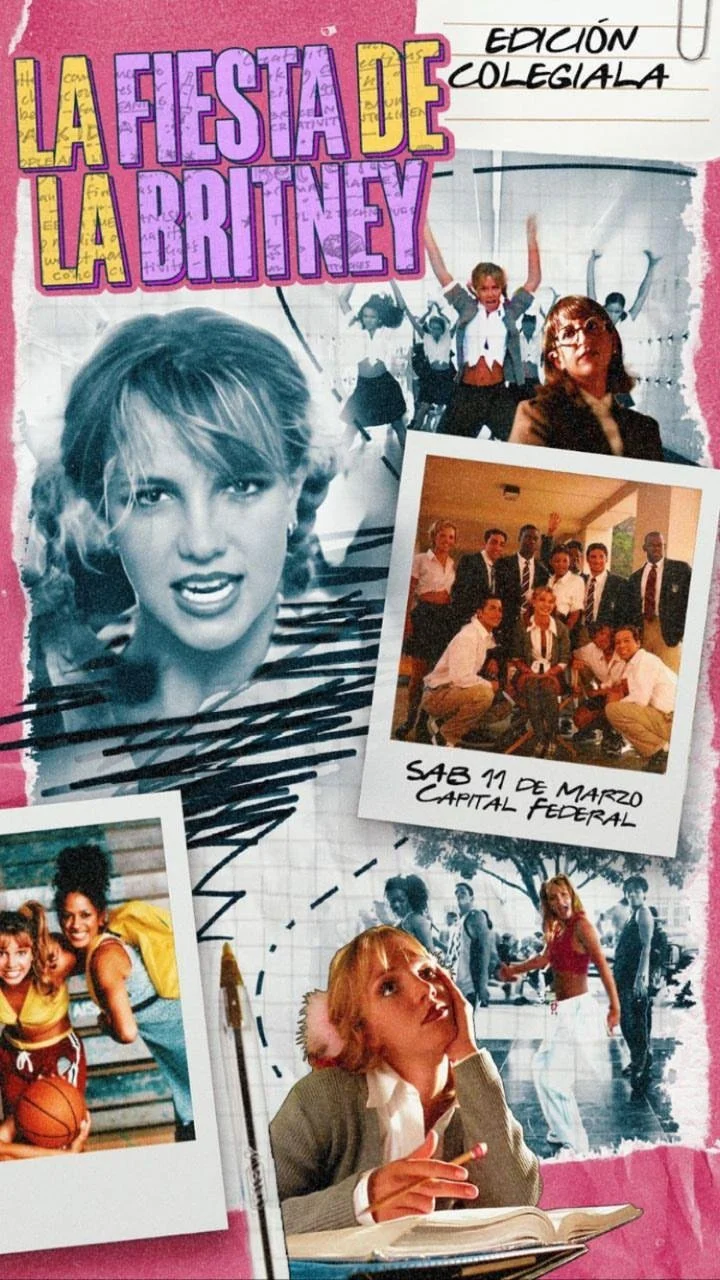Aftersun: Magnificent Masterpiece or Humungous Fraud?
by Dominic Hilton
April 2023
Dominic Hilton is stunned to discover that not everyone shares his reverence for Charlotte Wells’ acclaimed debut film.
On a muggy Monday night in Buenos Aires, with a power outage across half the city, I went alone to see Aftersun, the debut feature from Charlotte Wells. I’d been meaning to see the film for months, but I kept falling out with all the people I’d hoped to see it with, leading me to believe that the coming-of-age drama was in some way cursed. “What other explanation could there be?” I wrote in my diary. “That none of my friends relish the prospect of sitting next to me in a dark theatre for an hour and a half? Why would that be??”
In the end, I strolled the few blocks to my local Cinépolis in the Recoleta Urban Mall, where I paid 800 pesos ($2 USD) to see what proved to be something of a masterpiece. I’ve always loved going to the cinema alone and the moment I fell into my fat, comfy seat, slotting my bucket of icy Coke Zero into the armrest holder, I wondered why I hadn’t thought of this solution before. Earlier that same day, my English friend George had insisted that I see the film unaccompanied, having been himself the week before. “I wish I’d seen it alone so I could have sobbed the way I wanted to,” he wrote to me on Instagram. “It’s not like a Marvel movie.”
I told him I’ve never seen a Marvel movie. “Good, cos they suck,” came his reply.
The lights dimmed, and from the opening frame of the film, I felt myself submerged. Was this because the lead characters kept plunging feet first into various bodies of water? If so, the director did her job and did it well, blurring all sorts of lines in my oxygen-starved mind. The actors didn’t seem to be acting at all, and Aftersun felt less like a film than a dream state, or a messy, imperfect memory of some kind. The story followed an eleven year-old Scottish girl and her thirty year-old single father on a summer holiday at an unremarkable Turkish resort in the late 1990s. All of which bore scant relation to my own childhood. And yet, sitting spellbound in the dark, I’d been cast so adrift by the manipulative storytelling that the whole fiction felt entirely real to me. Personal, even. After ten minutes, my extremities were blue with cold and I barely remembered where I was. By the end of the film, which was only 1 hour 36 minutes long, I felt like the paper straw I’d earlier wedged into my bucket of Coke Zero: flaccid and mushy, liable to decompose at the slightest touch.
“I felt like the paper straw I’d earlier wedged into my bucket of Coke Zero: flaccid and mushy, liable to decompose at the slightest touch.”
The lights came up and I gasped for air, before gazing around in a stunned sort of way at my fellow cinema goers. A few seats to my right, a young woman with black lipstick and a Caesar haircut was sobbing into the tattooed neck of her skinny, inert girlfriend. Three rows ahead of me, a family of five stood to stretch their limbs. The mother yawned, frowning at her children. Then she pulled the face that says, “What the hell was that all about?” before shrugging her large, exposed shoulders.
Are you shitting me? I thought.
~~~
The next day, unable to shake off my sadness, George and I met at a café in Palermo for a post-mortem. We sat at a large table with our friend Carlo, plus Silvia, Carlo’s teenage niece, who was visiting Argentina from Italy. I wasted no time declaring Aftersun one of the greatest films ever made.
“God, it really is, isn’t it?” George gushed. Tiny teardrops were making his eyes sparkle under the café’s spotlights. “I knew knew knew you’d love it!”
The author (l) and George
“I ordinarily don’t like to do this,” I told Carlo and Silvia, “but I’m afraid I must insist you see this film. I’m pushing it on you, the same way George pushed it on me.”
George nodded his approval. “And look how that turned out!”
Silvia, whom I’d thought wasn’t listening to us, glanced up from her phone to announce that she’d prefer to see Antman 6, or something of that sort. I held my head in my hands. “God, no.”
Carlo said that he had to wait for Maria, his girlfriend, to return to Buenos Aires from the Dominican Republic, as he’d promised to see the film with her.
“Well, just make sure you don’t miss it,” George said. “You’ll never forgive yourself.”
Over the following days, against my better instincts, I forced my opinions about the film onto others, singing its praises to everyone I encountered in the real and digital worlds, urging them to drop whatever nonsense they were doing, and rush to the cinema ASAP. “I’m lost for words,” I kept saying. Which wasn’t true: I just didn’t want to sound like the pretentious tit I so clearly am.
Still, I was gobsmacked by people’s reluctance to obey my recommendation. A dozen or so acquaintances I contacted flatly refused to see the film, telling me that they “wouldn’t be able to handle it.” Still bathed in its magical afterglow, I began to question whether these so-called humans had souls. “It seems too sad to watch,” didn’t strike me as a legitimate reason to ignore a transcendent work of art. But then again, I was the guy who’d never seen a Marvel movie, so…
A few weeks before, I’d made a similar mistake, instructing my friend Olisa to watch Les Vacances de Monsieur Hulot, the classic French comedy directed by and starring Jacques Tati. She’d vowed to do so, but when I asked her about it one night, she waved a dismissive hand, saying, “Oh, I never made it to the end of that.” We were sitting together on her balcony, and I stared out over the bright lights of the city, straining to conceal my anger. God knows why, but the only thing I could think to do was quote Matthew McConaughey’s character in Richard Linklater’s Dazed and Confused: “It’d be a lot cooler if you did.” I even attempted a drawling Texan accent.
“A dozen or so acquaintances I contacted flatly refused to see the film, telling me that they “wouldn’t be able to handle it.””
I could feel Olisa glaring at me for the longest time. Then she said, “I’m sorry, but… what?”
“Well,” I said, now glaring back at her, “endings. They matter.”
I was feeling sensitive, because I’d recently watched Pieces of a Woman, the Netflix drama starring Vanessa Kirby and Shia LaBeouf. The acting—especially by the leads—was astonishing, but the film then ruined itself with a saccharine Hollywood ending so grotesquely out of character with its mood I repeatedly punched my sofa in frustration.
~~~
A week after I’d seen Aftersun, the final scene of which I’ll never get over, Carlo messaged me. “Cafecito 15h. We need to talk.”
I met him in the same café we’d met with Silvia, who was now back in Italy, and George, who was now back in England. We sipped our coffees, talking about the economy and football, about food and travel, then Carlo ordered himself a slice of banana and chocolate budín, saying, “I’ve saved the biggest news for last.”
I assumed he was talking about the cake, but as he pronged his fork into the perfectly moist sponge, he said, “Aftersun.”
“Oh!” I said. “You saw it!”
He swallowed a piece of the budín. “Oh, I saw it.”
“And?”
“And I couldn’t wait to get out of the movie theatre and punch you in the face.”
Carlo
There was a moment’s silence as I blinked once or twice.
“That so-called “movie” is the biggest scam of all time,” Carlo continued. “An absolute fraud. I marched straight back to the box office and demanded my money back.”
“You’re joking?” I said.
“Do I look like I’m joking?”
He didn’t.
“Nothing unravels, nothing even happens,” he went on. “Character development? Fuck all. Cinematography? Sure, if you mean someone continually dropping the camera. I’ve seen Bollywood movies better than Aftersun. There is nothing there: nothing of any kind. There’s one beautiful image of two lesbians getting out of bed—but that’s it. I can make a better movie standing on one leg with one eye shut. I have a million ideas a minute that are better than that shit, which didn’t even have one idea. What was it even supposed to be about anyway? Nothing? You, my friend, need your head examined. Maria and I stayed up half the night talking about what the hell you saw in that fucking movie, and we concluded that the only reason you like it is because you are British.”
“You went with Maria?”
“I told you I was going with her. ¡Madre mia! Even she—a woman who feels sorry for a fly if it lands on her nose: “¡Ay, pobrecito!”—wants to kill you for putting her through that.”
“Me?” I said. “It was your idea to take her.”
“Yeah, on your recommendation. Fucking George, too—another Brit. He’s lucky he left Argentina, otherwise Maria and I would murder him as well.”
“Isn’t great art great art? Are we not all agreed on that?”
I didn’t know what to say. I genuinely thought Carlo would love the film, like I did. I thought everyone in the world would love the film, like I did, because… well, isn’t great art great art? Are we not all agreed on that? Are there really people walking amongst us who’d look up at the Sistine Chapel ceiling and say, “What a pile of arse gravy, I could paint that shit in my sleep”?
I tried saying some stuff about how Aftersun forces its audience to see things through the eyes of Sophie, an eleven-year-old girl, and how, as the audience, we’re not seeing things as much as we are seeing them, and how really that’s the whole point in the film. Like present-day, grown-up Sophie, we are searching for clues to answers we know are missing, not being fully shown to us. I searched my mind for something Carlo might understand, and ended up quoting Dr. Ana Stelline, a character in Blade Runner 2049, who said, “They all think it’s about more detail. But that’s not how memory works. We recall with our feelings. Anything real should be a mess.” Then I told Carlo I’d thought he was more sophisticated than he is.
“Fuck you,” he responded.
I reminded him that we’d recently attended a contemporary art fair together—MAPA at La Rural—and that I’d noticed how he didn’t understand any of that art either.
He shook his perfectly bald head disappointedly at me. “Yeah, and I hope I never will.”
“Well,” I said, shrugging my shoulders like the woman I’d wanted to murder in the movie theatre, “the film left me in tears, so—”
“Oh, it left me in tears, too,” Carlo interrupted. “For different reasons.”
Britney Night at Uniclub, Buenos Aires
Aftersun is suffused with a sense of impending doom, and a similar sense was now washing over me as I sat opposite Carlo in the café. Joey, our favourite waiter, spotted the escalating commotion and skated towards our table to referee the quarrel. “¿Que pasa acá hoy, chicos?” One of the many things I loved about Charlotte Wells’ film is how it doesn’t try to offer a single, trite explanation for Sophie’s father’s depression. Life, I guess, is just too much for poor Calum. Adulthood, in particular.
Not for Carlo, though. There’s a scene in Aftersun where we see the pile of books Calum is reading in what is presumably a failed effort to calm his troubled mind. How to Meditate. Tai Chi. Being Aware of Being Aware. Poems, Stories and Writings by Margaret Tait.
“Give me a break,” Carlo said. “I have the same fucking books he had and I don’t think of committing suicide.”
My mind turned to George, who’d just finished writing a book of his own. Indeed, that’s how we’d met. Was Carlo right? Did we only love the film because it was British, like us? The last time I saw George was at 6am at a club in Abasto. It was Britney night and bulky men in girls’ school uniforms and pig tails were gyrating on stage to the delight of the crowd. I danced along, swigging a can of beer, grinning to myself like a madman. At one point, George pulled me towards him and shouted into my ear, “We’re the same, you and I. Kindred spirits. I knew it: like I knew you’d love Aftersun.”
Then, shirt unbuttoned, he disappeared back into the sweaty throng. And already, my messy, inadequate memories of him have started to feel like a dream. In years to come, those memories will involuntarily creep up on me, stirring tremendous nostalgia for the things I have mysteriously loved and lost, and I will search in vain for clues to the answers to all my questions, not knowing where best to look.





